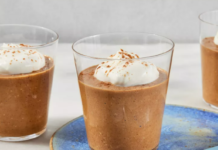The Largest Study on Food-Induced Inflammation Just Revealed This Surprising Effect
Heart disease is the leading cause of death in the U.S., accounting for as many as 1 in 4 deaths every year. Some of the risk factors of this disease include high blood pressure, high blood cholesterol, and smoking. Outside of family history, we know that the main culprits are diet and other lifestyle factors, but new research suggests that some individuals may be at higher risk simply because of the way their body responds to eating certain foods.
A new peer-reviewed study from the health care science startup ZOE, and published in the American Journal of Clinical Nutrition, takes a closer look at how inflammation triggered by food varies widely between individuals and can be a predictor of heart disease. It’s also the largest study to explore the body’s immediate response to food and the first study of its kind to show how some individuals are more susceptible to food-induced inflammation than others. (RELATED: 6 Symptoms of Chronic Inflammation You Shouldn’t Ignore, Say Experts)
What did the study reveal?
After you eat a snack or a meal, you experience an increase in inflammation—it’s a completely normal biological response. Prolonged periods of inflammation have been liked to chronic health conditions like heart disease and type 2 diabetes. Again, the severity of food-induced inflammation varies from person to person.













